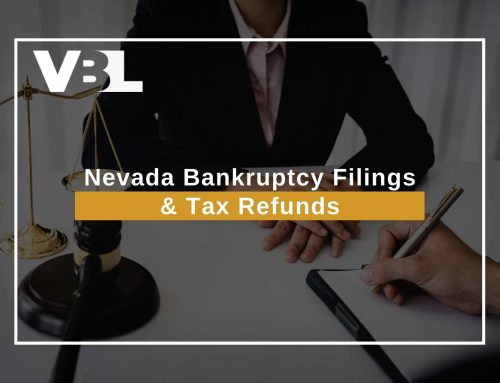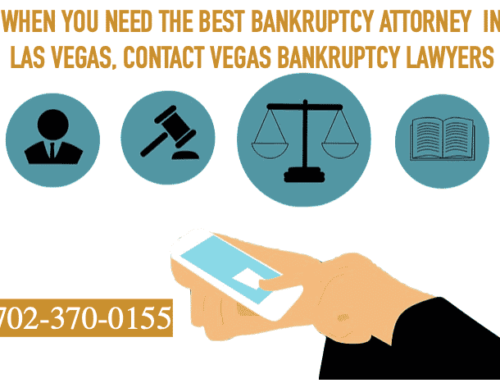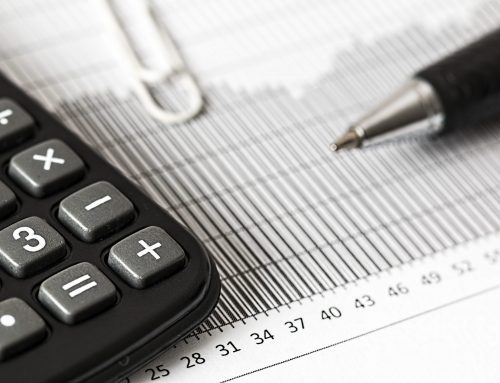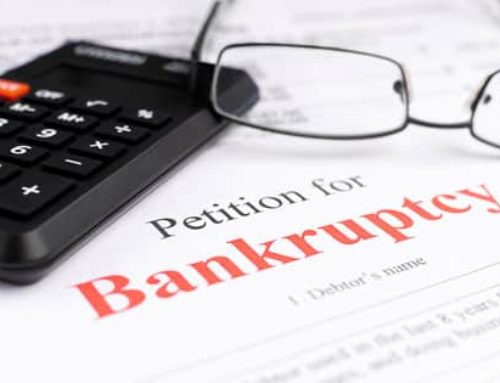How Long Must I Wait Before Filing Bankruptcy To Discharge Tax Debt In Nevada?
What To Know When Filing For Bankruptcy To Discharge Tax Debts
Everyone who files taxes knows what a hassle and how confusing it can be. It can be even more stressful when you don’t have enough money to pay what the IRS says you owe. Years could go by, and the amount you owe to the IRS could have grown past anything you’ll ever realistically pay off. The IRS has different options in how to pursue the debt than standard creditors. This isn’t a great position to be in, but bankruptcy might be able to help. If you’re considering bankruptcy to discharge tax debts, you should consult, if not retain, with an experienced bankruptcy lawyer in your area. This could make a huge difference in your case, and some bankruptcy cases will most likely end up dismissed without attorney representation. Call or fill out our online form for your free consultation with a member of our dedicated Nevada bankruptcy team.

What Happens To Tax Debt In a Chapter 7 Bankruptcy?
Chapter 7 bankruptcy discharges unsecured nonpriority debts like repossession deficiencies, credit cards, medical bills, personal loans, unpaid utilities, and more. It doesn’t discharge secured debts or unsecured priority debts. Examples of unsecured priority debts include domestic obligations and student loans. Tax debts are typically unsecured unless a lien has been attached to the debtor’s property as a result. Tax debts may or may not be priority debts. To be considered non-priority, taxes must meet the following requirements:
- Taxes from at least 3 years ago
- Taxes filed at least 2 years ago
- Tax debt assessed at least 240 days ago
- No fraud
Qualifying For Chapter 7 Bankruptcy
Just because your tax debt is dischargeable in Chapter 7 bankruptcy doesn’t mean that you’ll qualify to file. There are two ways to qualify for Chapter 7 bankruptcy in Nevada. If your income falls below Nevada’s state median for your household size, you will qualify for Chapter 7 bankruptcy. Your household size can only include a legally married spouse, minor children, and yourself. You should use your average combined income over the past 6 months when checking if you qualify for Chapter 7 bankruptcy. Starting at a household of one, the median monthly income is $4,745.75, $6,090.25, $6,764.92, and so on as you add family members. Click here to see the median monthly income in Nevada for larger households.
If you want to file Chapter 7 bankruptcy but make more than Nevada’s state median income for your family size, you will need to pass the means test. This calculates your disposable monthly income for bankruptcy purposes. If your disposable monthly income is negative or close to negative, you may qualify for Chapter 7 bankruptcy. It is best to have your income reviewed by a bankruptcy attorney if you are unsure if you qualify. Otherwise, your case could be dismissed, and your bankruptcy filing would be just a waste of time and money.
Qualifying For Chapter 13 Bankruptcy
While Chapter 7 bankruptcy requires you to fall under certain income limits, Chapter 13 requires you make at least a certain amount for your plan to be confirmed. For Chapter 13 bankruptcy purposes, there are four types of debt: bankruptcy fees, secured debts, priority debts, and unsecured nonpriority debts. They will be paid in that order in your plan. Your payment plan will be 3 years long if your income is below Nevada’s median for your family size, and 5 years long if you exceed that amount. With your disposable monthly income, you must be able to pay off at least the first three debt categories for your plan to be approved. If your taxes meet the requirements described above, they will be in the fourth category of your payment plan. That means they might not have to be totally paid off, depending on your disposable monthly income. This could be a deciding factor in whether you file bankruptcy or try to work out some alternate arrangements with the IRS. Schedule your free consultation with our firm to discuss your options with an experienced Nevada bankruptcy lawyer.
I Have Tax Liens. Will Bankruptcy Help?
The bad news is that bankruptcy can only discharge your financial obligation to pay a debt and can’t clear a lien that has already been recorded. Once that happens, the debt becomes secured. However, just because a Chapter 7 bankruptcy can’t help with a tax lien doesn’t mean that a Chapter 13 bankruptcy can’t. Secured debts are the third category paid in your Chapter 13 payment plan. They must be paid in full in order for your payment plan to be confirmed. You will also be protected in the meantime from your creditors taking actions like wage garnishments, home foreclosures, bank levies, and more. Call our office at 702-370-0155 to learn more.
Do I Get To Keep My Tax Refund In a Bankruptcy Filing?
For someone who is filing bankruptcy, a tax refund can be critical to paying bills, taking care of expenses that have been put off, and overall making financial choices that can improve your family’s well-being. In bankruptcy, the trustee can take any assets you own that aren’t protected by bankruptcy exemptions you applied to them. In Nevada, you have the choice between using federal exemptions or Nevada’s state exemptions. You can find the full list of Nevada’s bankruptcy exemptions here. Nevada has an exemption for tax refunds attributable to state or federal Earned Income Credit. Nevada also has a $10,000 wild card exemption, which doubles for married couples. If you use the wild card exemption to protect something else, your trustee can take your tax refund if you don’t spend it before your case is filed. If you have the availability, you might need to put off filing your bankruptcy case until you have received and spent your tax refund. In a Chapter 13 bankruptcy, the trustee will most likely take your tax return if 100% of all four debt categories aren’t being paid in your plan. If your disposable monthly income allows you to pay all of your debts in your payment plan, you can keep your tax refund. However, in this situation, you wouldn’t be discharging any unsecured non-priority debt without repayment.
The Nevada Legal Team You Can Trust With Your Bankruptcy Case
When something goes wrong in a bankruptcy, there’s so much more than your case’s legal status at stake. Even brief pauses in the protections from the automatic stay could give your creditors opportunities to repossess assets you were aiming to keep in your bankruptcy. Your trustee could seize your assets or could require that you pay extra fees to keep your bankruptcy in good standing. Without the proper bankruptcy representation, all of these potential issues could complicate your case beyond repair. But our Nevada bankruptcy team is here to help with pricing options that you can afford. Our Nevada bankruptcy lawyers have the experience to get your case filed smoothly, and we offer payment plan options that start as low as ZERO DOLLARS DOWN. Call our office or fill out our online form to let us know when you’d like to schedule your FREE initial consultation.

Las Vegas Bankruptcy Lawyers
LAS VEGAS
7251 W Lake Mead BLVD #300
Las Vegas, NV89128
Office: 702-879-2499
Email: [email protected]
HENDERSON
1489 W Warm Springs Rd. Ste 110
Henderson, NV 89014
Email: [email protected]
Additional Information at:
















